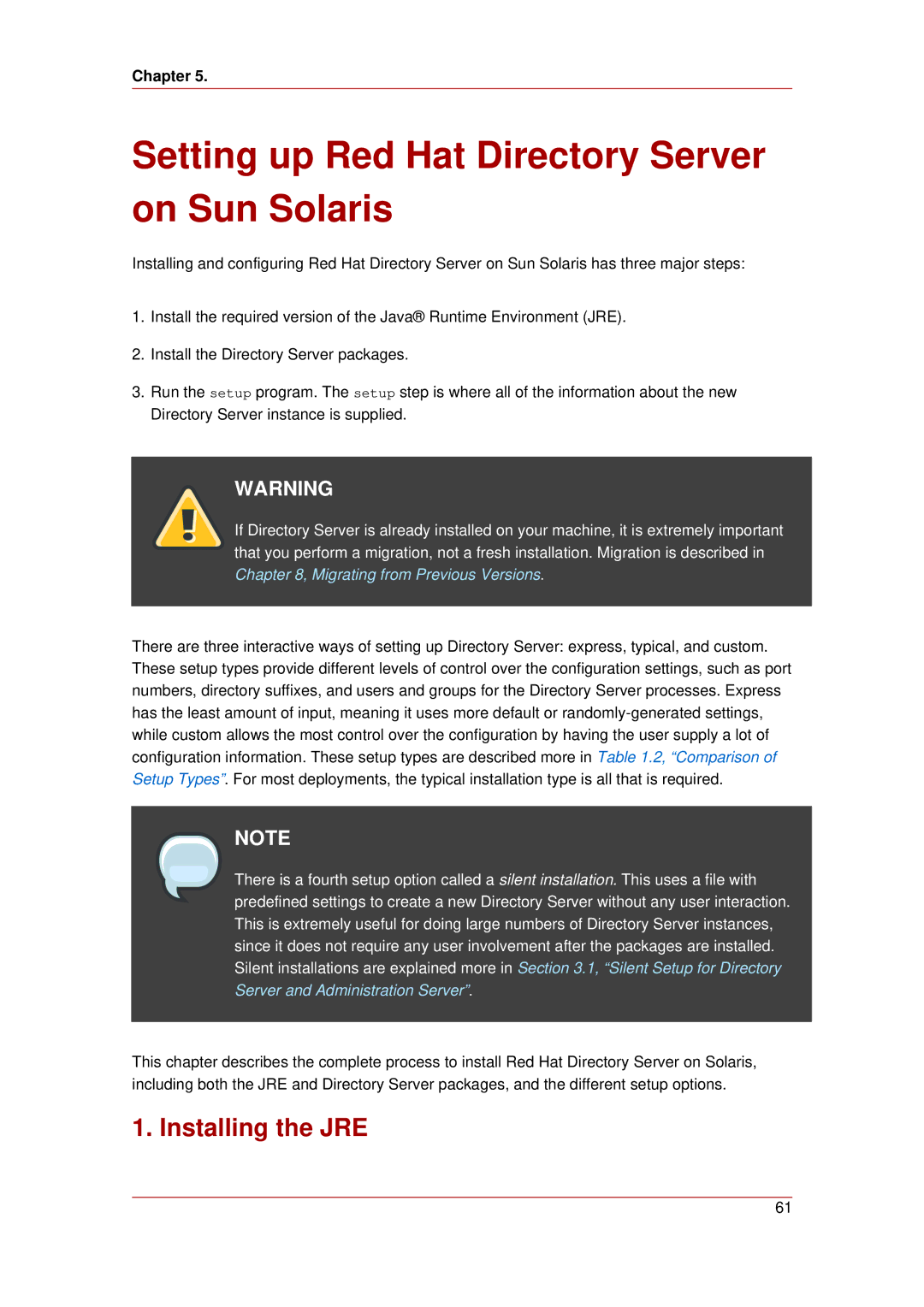
Chapter 5.
Setting up Red Hat Directory Server on Sun Solaris
Installing and configuring Red Hat Directory Server on Sun Solaris has three major steps:
1.Install the required version of the Java® Runtime Environment (JRE).
2.Install the Directory Server packages.
3.Run the setup program. The setup step is where all of the information about the new Directory Server instance is supplied.
WARNING
If Directory Server is already installed on your machine, it is extremely important that you perform a migration, not a fresh installation. Migration is described in Chapter 8, Migrating from Previous Versions.
There are three interactive ways of setting up Directory Server: express, typical, and custom. These setup types provide different levels of control over the configuration settings, such as port numbers, directory suffixes, and users and groups for the Directory Server processes. Express has the least amount of input, meaning it uses more default or
NOTE
There is a fourth setup option called a silent installation. This uses a file with predefined settings to create a new Directory Server without any user interaction. This is extremely useful for doing large numbers of Directory Server instances, since it does not require any user involvement after the packages are installed. Silent installations are explained more in Section 3.1, “Silent Setup for Directory Server and Administration Server”.
This chapter describes the complete process to install Red Hat Directory Server on Solaris, including both the JRE and Directory Server packages, and the different setup options.
1. Installing the JRE
61
